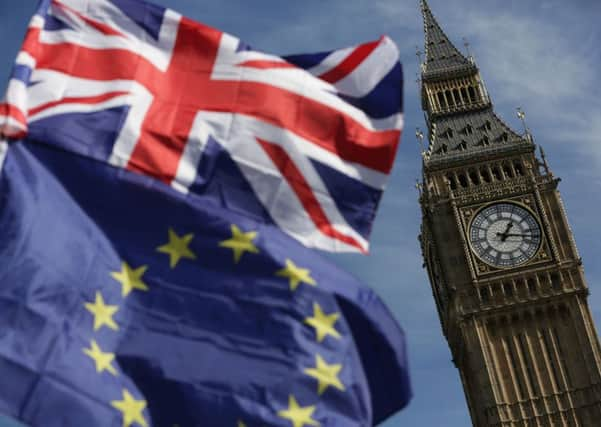Graham Birse: Getting down to business over Brexit
This article contains affiliate links. We may earn a small commission on items purchased through this article, but that does not affect our editorial judgement.


Firstly, like the rest of us, most business leaders did not expect a clear Yes from the British people. And so they kept their heads down and hoped for the best. Even Boris Johnston vanished for a day or two after the referendum, unable to come up with a coherent explanation for what had just happened.
• READ MORE: Brexit and EU referendum news
Secondly, the business organisations – CBI, IoD, Chambers of Commerce and the like – while expressing their support for Remain, did a poor job of actively campaigning to ensure that the consequences of Brexit for business and jobs were widely understood.
Advertisement
Hide AdAdvertisement
Hide AdThirdly, private sector business leaders are uncomfortable about stepping into the political cockpit, where fur and feathers fly. Many a business leader has found politics a rough trade – and so much prefer to get on with the job of making money and hope for “stability”.
Well, stability is an elusive and distant prospect at the moment. Over a year on from the referendum, one general election and a hung parliament later, we arrive at the Brexit Crossroads, where some hard decisions have to be made. And it is time for business leaders to get off the fence and ensure that the politicians know what’s at stake here.
A hard Brexit would be disastrous for trade, for jobs and for stability. And it is too important to all of us to leave it to the politicians to make the best of it.
As the Economist put it last week: “Brexit’s complexity is on a scale that the political class has wilfully ignored. Quite apart from failing to spell out how to negotiate history’s trickiest-ever divorce, no politician has seriously answered the question of how the economic pain of Brexit will be shared. Less trade, lower growth and fewer migrants will mean higher taxes and lower public spending.”
Even at this, the 11th hour, it may yet be possible to salvage something from this shambles.
Theresa May’s expectation in calling a snap general election was to secure a stronger majority to deliver a hard Brexit – out of the customs union, out of the single market and out of the European legal system and its binding agreements.
Now she no longer commands the House of Commons it seems unlikely that such a Brexit would win the majority it requires. Moreover, legal opinion is currently being sought on whether the repeal of the European Communities Act (1972), which took us into the EEC (EU) requires the consent of the Scottish Parliament and Welsh Assembly too.
Advertisement
Hide AdAdvertisement
Hide AdIn all of the political turbulence, it would be tempting for business leaders once more to keep their heads down and hope for the best. This would be a disaster for business and the economy.
It is time to step up to the plate and consign hard Brexit to the dustbin.
• Graham Birse is managing director of Graham Birse Consulting